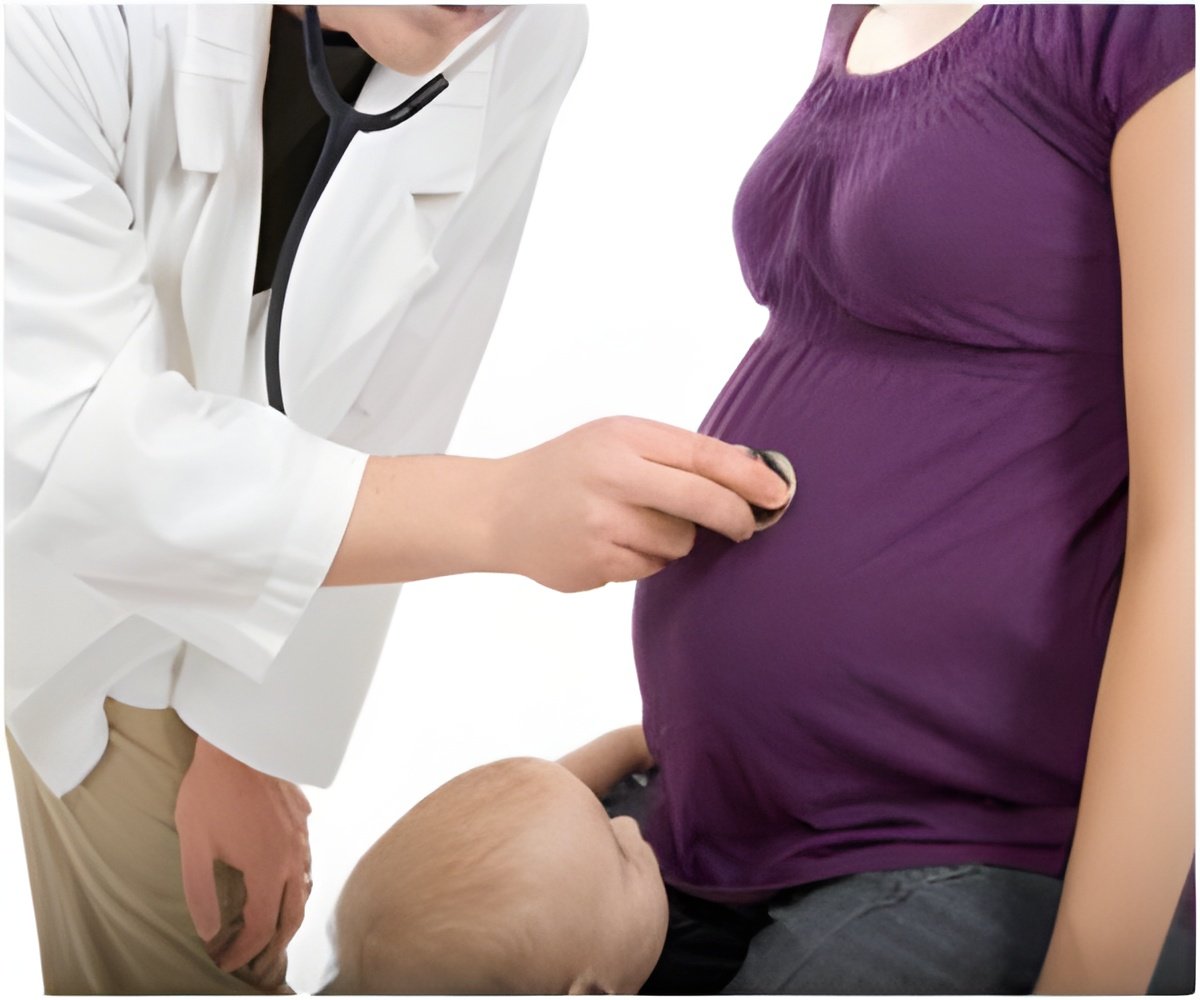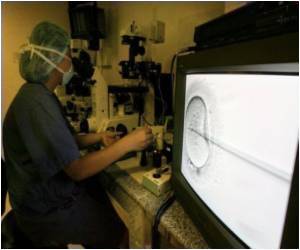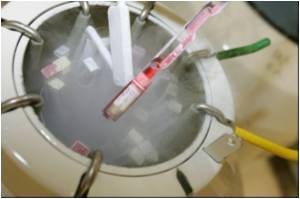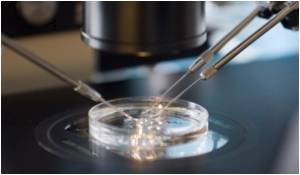A new study has found that a blood test for levels of a hormone called AMH, or antimullerian hormone, at the beginning of the in vitro fertilization (IVF) cycle can help predict likelihood

The finding could aid counseling and give doctors a new tool to adjust treatment.
"Clinicians can measure AMH before or during ovarian stimulation to counsel couples about their likelihood of success," said Geralyn Lambert-Messerlian, a researcher in the Division of Medical Screening and Special Testing at Women and Infants Hospital.
Lead author Andrew Blazar, a physician at Women and Infants' Division of Reproductive Endocrinology and Infertility, said the finding could be useful for adjusting IVF preparations on the fly.
In their research, Blazar and Lambert-Messerlian's team measured AMH levels in 190 IVF patients, ages 22 to 44, both at the beginning and end of their preparatory course of follicle stimulation hormone treatment.
The researchers found that women with low AMH levels in the first test on average yielded only about six eggs, while women who had more than three times as much AMH provided about 20 eggs on average.
Advertisement
Among women with more than three nanograms, three in five were pregnant at that stage.
Advertisement
Source-ANI















